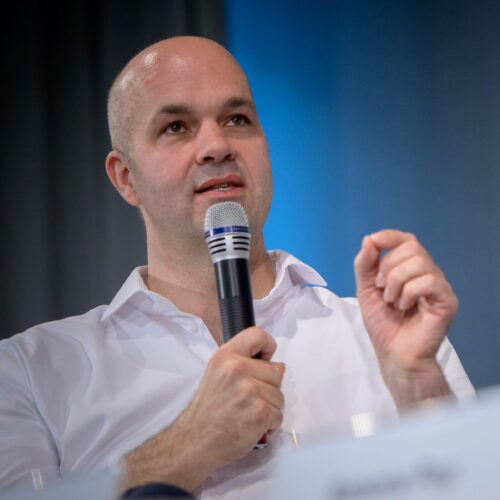BIOGRAPHY
Marcel Fratzscher is a globally renowned expert on macroeconomics and global finance, with extensive experience in international policy-making and academia.
He is President of DIW Berlin (the German Institute of Economic Research) and Professor of Macroeconomics and Finance at Humboldt-University (Berlin). DIW Berlin is an independent institution with over 300 employees, and is regarded as one of the leading research institutes and think tanks in Europe.
Prior to his role at DIW, Marcel served as Head of the International Policy Analysis Division at the European Central Bank (ECB) from 2001 to 2012. From 2000 to 2001 he was at the Peterson Institute for International Economics. From 1996 to 1998 – before and during the Asian financial crisis – he worked with the Harvard Institute for International Development (HIID) at the Ministry of Finance of Indonesia. He has also held roles at the Asian Development Bank, the World Bank and in several parts of Asia and Africa.
Marcel Fratzscher’s research covers a range of key issues in macroeconomics, international finance, monetary economics and international policy coordination. In 2007, he was awarded the Kiel Institute Excellence Award in Global Economic Affairs for his work on global financial linkages and monetary policy. Marcel Fratzscher was also given the CEPR prize in the same year for the Best Central Bank Research Paper for his work on asset price bubbles and global imbalances.
MARCEL FRATZSCHER: SPEAKER
One of the world’s leading economic minds with extensive experience at the highest level of academia and policy-making, Marcel is a highly articulate speaker on the critical issues facing the global economy and international finance: the impact of war in Ukraine, the outlook for Germany/Europe, the economics of Brexit, the Chinese slow-down, US-China trade wars, and how to tackle global inequality, to name but a few.
Marcel Fratzscher’s topics include;
- Quo vadis Europe – when will the next crisis come?
- Germany facing the acid test: how the inequality problem will affect our prosperity
- An Asian Century? Economic outlook and opportunities
- Economic aspects of the refugee crisis
- Germany’s investment gap: why we overestimate our economy and need Europe
He is also able to deliver a nuanced analysis of economic policy-making, in particular why policy-makers at the ECB and in Berlin act the way they do.
